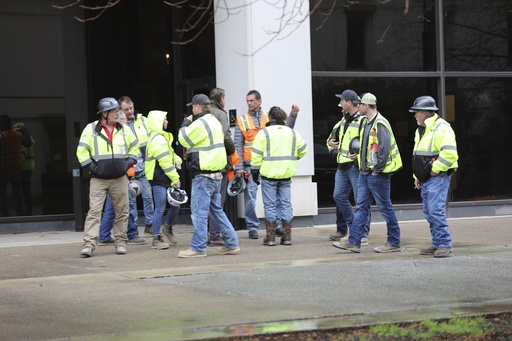
COLUMBIA, S.C. — Proposed legislation that would allow Scout Motors, a company backed by Volkswagen, to sell its electric SUVs directly to consumers in South Carolina has hit a standstill due to strong resistance from established auto dealers.
During a recent meeting of a House subcommittee, a carefully orchestrated session allowed just an hour of discussions featuring testimony from Scout and its advocates, alongside opposing dealers. Ultimately, the subcommittee chose to suspend debate on the bill, casting doubt on the possibility of a resolution before the legislative session concludes in May.
Scout Motors, based in Virginia, is seeking legislative approval to enable South Carolinians to purchase vehicles through an app and manage all associated services like repairs, updates, and upgrades without the need for traditional dealers. The appeal from auto dealers, however, emphasizes their role in maintaining market competition in pricing and service. They argue that their local presence fosters a responsiveness to customer issues and that the dealer model has shown effectiveness for many years.
South Carolina joins a list of around two dozen states where direct sales from manufacturers to consumers are prohibited. Instead, state law mandates that new vehicles be procured via dealerships.
The brief meeting of the subcommittee has garnered the attention of Governor Henry McMaster, who has urged the legislature to provide a more detailed examination of Scout’s proposal. This comes in light of the significant commitment from the state, which is offering over $1 billion in incentives towards Scout’s manufacturing facility located in Blythewood, just north of Columbia. The plant is anticipated to produce its first vehicle by 2027.
Governor McMaster stated, “For a bill involving a reputable company investing billions in South Carolina, creating 4,000 high-paying jobs, we owe it to them to have a proper debate. Everyone should be given a chance to voice their opinions before we vote.” He expressed this sentiment on Thursday.
A notable assembly of construction workers donned in hard hats and high-visibility vests rallied at the Statehouse to show support for Scout. Conversely, numerous auto dealers and their staff came in business casual attire, leading to officials having to open additional space to accommodate the large turnout for the hearing.
Advocates for Scout Motors argue that the issue revolves around consumer choice. They question why cars should be exempt from the trend of online shopping, which encompasses a wide variety of products from clothing to personal care items.
“If you value liberty, you will support this initiative. If you prioritize consumer freedom, this bill deserves your backing. Advocating for deregulation and economic growth also leads to support for this bill,” said Cody Thacker, Vice President of Growth at Scout. He further emphasized the company’s intention to generate 10,000 jobs and inject $4.2 billion into South Carolina’s economy.
In contrast, auto dealers contend that purchasing a vehicle is much more complex than buying retail goods. They highlight the need to navigate taxes, registration, and regulations, along with considerations like test drives and customer satisfaction.
Marc White, a Volkswagen dealer in Greenville, voiced his concerns at the subcommittee meeting, revealing that he had offered to sell Scout vehicles through his dealership but had not received a response.
“The last thing I want is to see my state investing over a billion dollars in Scout, only for them to compete directly with my family business that has thrived without governmental support,” White expressed.
Sims Floyd, executive vice president of the South Carolina Automobile Dealers Association, echoed these sentiments, criticizing the substantial financial backing provided to Scout. He pointed out that the local dealers had built their businesses without government handouts, stressing, “The 47 dealers present here today have established their businesses from the ground up. They have never turned to the government for money, and they consistently fulfill their tax obligations.”
Scout Motors has reassured the public that it will still establish its manufacturing capabilities in South Carolina regardless of the outcome concerning direct sales legislation and remains committed to lobbying for changes that would benefit itself as well as other electric vehicle manufacturers like Tesla and Rivian.

